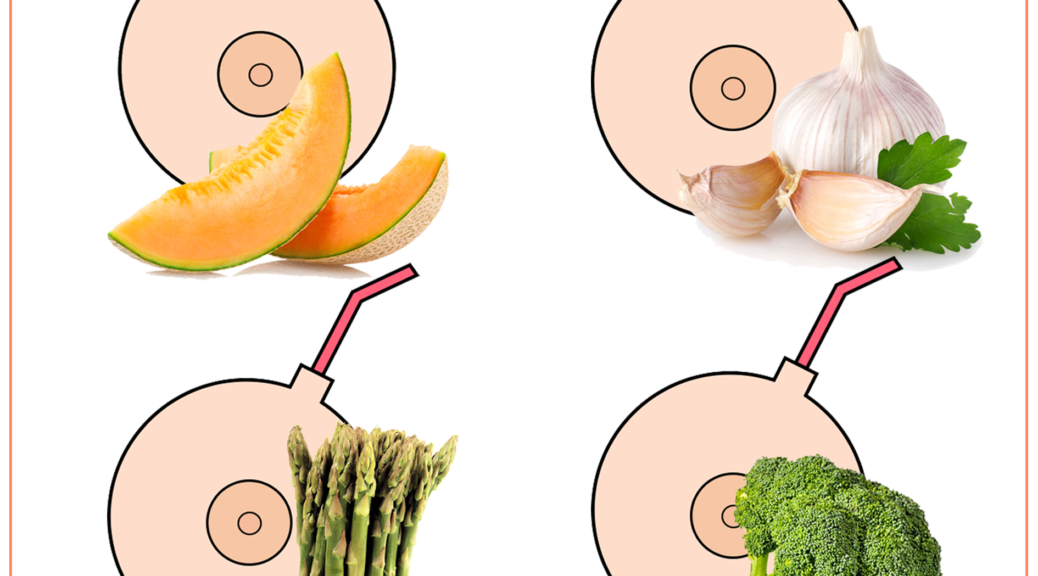
What is the natural taste of breast milk?
Many mothers worldwide are still often told that they should avoid eating certain foods so their breastmilk doesn’t taste bad, which could supposedly make the baby reject their breastmilk.
Is there such a thing as a natural taste of breast milk?
Of course, there is! But what happens is that the natural taste of breast milk is not always the same, but has very different and a broad range of flavors. Breast milk tastes of not just one flavor alone. It is just a bit like a multi-flavor pack of sweets:
Melon-flavored breast milk
Garlic-flavored breast milk
Asparagus-flavored breast milk
Broccoli-flavored breast milk
And so on… There is an infinite variety.
Breast milk does not have a standard taste; the taste of breast milk changes and is surprising. All the food a mother eats often has subtle compounds that find their way into the milk and “flavor” it. We have been told for so long that this is a problem and that mothers should avoid eating certain foods. It seems that a mother’s nutrition should be as bland and neutral as possible, as far as taste is concerned, to prevent the baby from rejecting her milk.
What food is not recommended for breastfeeding mothers?
In each country, people will recommend you not to eat different food so breastmilk does not “taste wrong” or sour or bitter. The list of “recommendations” is so long that if you deprived yourself of all those foods that are forbidden all over the world, you would hardly be able to eat or drink anything at all. So don’t worry; eat whatever fruit and vegetable you like: they are undoubtedly very healthy and will offer your baby a unique sensory experience.
And what do babies want?
Science has shown that babies like variety and will suckle with more interest if breastmilk tastes different. They don’t know breast milk with a neutral taste, as there is none. They have already been exposed to many different flavors, even if you would have tried to avoid it by eating very bland food.
For example, colostrum has little lactose (the sugar in breast milk), which makes it taste salty. This is very different from the mature breast milk they drink later.
And if the mother has engorgement or mastitis, breastmilk will also taste saltier. Some babies then reject this milk when it tastes salty or want to drink less, as sweetness has no doubt a powerful, addictive effect on the human brain.
Breast milk also changes in taste when it is pumped and offered to the baby. Lipase, an enzyme found in human milk, breaks down the fat in milk to make it more digestible for the baby. This degradation, which many of you may have seen, can make the milk taste sour and have a very strong taste on the palate.
And without a doubt, every time a mother eats a new food, her baby tastes that new flavor. This is a unique experience for babies that allows them, in a safe way, to discover what food tastes like. So when they start eating by themselves, and you introduce solids at six months of age, the taste of the food they are offered will not be so strange to them at all.